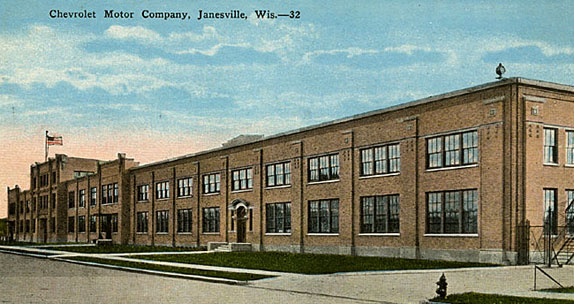As Goes Janesville
About the Documentary
Janesville, Wisconsin is not unlike a lot of Midwestern blue-collar, middle-class towns in America. Since the economy began its nosedive in 2008, Janesville residents, civic leaders, and businesses have been plunged into an extended cycle of hardship and uncertainty. And like other towns in other states across the nation, Janesville has found itself at a crossroads: As a place with more people than jobs, how can it reinvent and restore itself, and at what cost? Almost exactly one year after the recession officially began, General Motors shuttered its Janesville Assembly Plant — the oldest GM plant in all of North America — where for decades locals had held down good-paying mostly union jobs making SUVs and pickup trucks. It was just before Christmas in 2008 and almost 2,000 Janesville residents were either out of a job or given an offer to transfer to one of several GM plants in other states. The nearest plant is a day’s drive away. For those with roots and family in Janesville, or kids in school, or a spouse with another company in the region, the prospect of leaving presented wrenching choices. Some Janesville GM alumni found work in other industries, or have gone back to school to retrain (sometimes incurring frightening levels of debt along the way). Meanwhile, local business leaders believe they have a solution. If they can find a handful of companies who would be willing to relocate to Janesville, the jobs would come back, and the people of Janesville could stay and thrive. To accomplish this, they begin a persuasive campaign (its members dubbed “the ambassadors of optimism”) to woo promising companies, and to enlist the Janesville City Council to make them an offer they can’t resist with tax incentives and loan guarantees for private investors. And then in 2010, the midterm election campaigns hit high gear, and perhaps nowhere did they reverberate more widely than in Wisconsin. Scott Walker, a young and fiery politician in Milwaukee, captured the GOP endorsement for governor with a platform focused on repairing Wisconsin’s battered economy and creating a quarter million jobs using deep cuts in the capital gains tax, incentives for small businesses, and rolling back spending on state spending — including measures to restrict the collective bargaining rights of public employees such as firefighters, teachers, and police officers. Walker, who gave out “Wisconsin: Open for Business!” campaign bumper stickers, was swept into office by a hefty margin, and quickly introduced his “budget repair bill” in early 2011. The bill passed, but not before the Wisconsin State Capitol in Madison was besieged by protestors and the Democratic members of the legislature (including Janesville’s representative Tim Cullen) fled the state in an attempt to block it. Meanwhile in Janesville, there is ambivalence. A pro-business agenda at the state level is a relief to the local “ambassadors of optimism.” Those who have been lifelong autoworkers and union-members are nervous about wagering hard-won labor rights for a so-far speculative economic resurgence. But everybody in Janesville is eager for something — anything — that might help them keep their community in one piece. The story of Janesville is a parable for cities large and small across the United States. In this era of economic challenge and ideological polarization, how might we redefine the American Dream?
The Filmmaker
Brad Lichtenstein an award-winning filmmaker and president of 371 Productions, a media company dedicated to producing social issue documentaries, technology projects and public engagement campaigns that contribute to the common good. Brad has been making documentaries since 1994. His 2006 Independent Lens film Almost Home, about people who live and work in an elder-care community, continues to be featured in workshops on aging and caregiving. As Goes Janesville is a coproduction of 371 Productions and Kartemquin Films.The Filmmakers
Brad Lichtenstein
Learn More About the Documentary

In Pictures: Janesville’s Industrial Rollercoaster, 1849-2008

